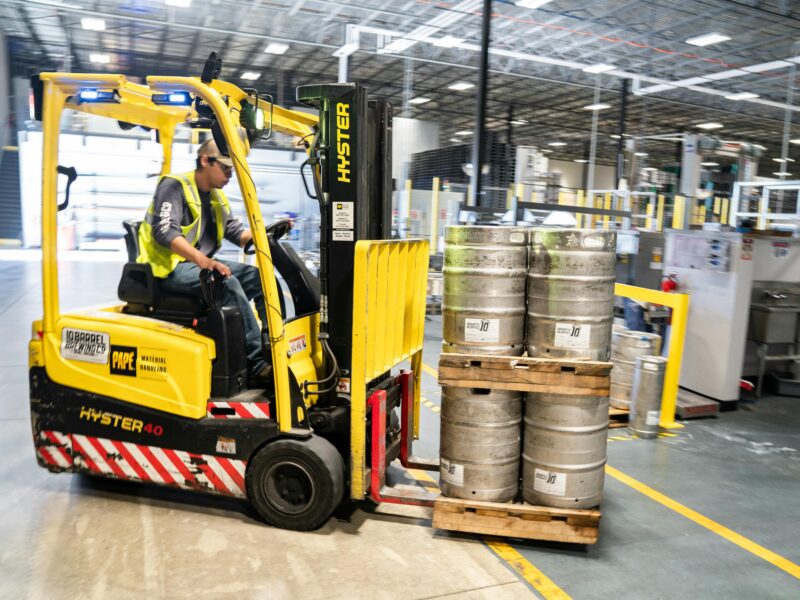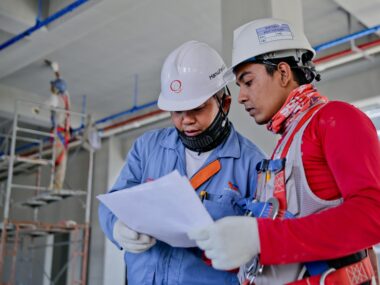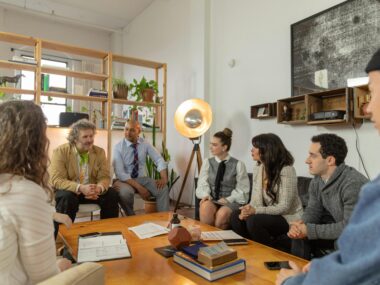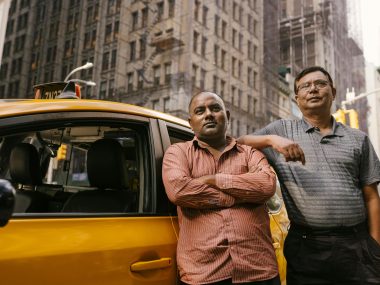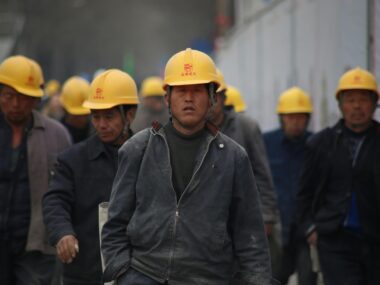Factory Workers in Australia with Visa Sponsorship
Introduction
Factory Workers in Australia with Visa Sponsorship! Australia is one of the top destinations for immigrants seeking stable employment and a better quality of life. With a booming manufacturing sector and a persistent labor shortage, the country actively recruits factory workers from around the globe. Whether you’re looking to start fresh or build a long-term career in manufacturing, factory jobs offer a promising path with visa sponsorship opportunities available through various immigration programs. Norway Visa Sponsorship Jobs
Factory workers play a pivotal role in the Australian economy. They are involved in processing raw materials, assembling products, packaging, quality control, and machine operation. From food processing plants to automobile factories and textile manufacturing units, the demand for skilled and unskilled workers in this sector remains high. The COVID-19 pandemic created significant labor gaps, which Australia is now striving to fill, making this a perfect opportunity for foreign workers.
Visa sponsorship is one of the most attractive aspects for international candidates. Australian employers who can’t find suitable local candidates can sponsor skilled and semi-skilled foreign workers through the Temporary Skill Shortage (TSS) visa (subclass 482) or other pathways. This opens the door for immigrants with minimal experience or those in entry-level roles to establish a career and possibly transition to permanent residency. KfW Loans for Small Businesses in Germany
Entry-Level Factory Workers in Australia with Visa Sponsorship
Australia’s manufacturing and logistics sectors are actively recruiting entry-level factory workers to meet labor market demands. These roles typically don’t require extensive qualifications, making them ideal for immigrants and those new to the workforce. Responsibilities can include machine operation, cleaning and maintenance, packaging goods, and working on production lines. Spain Visa Sponsorship Jobs
Many employers are willing to train on the job, especially in food processing and packaging plants. For example, meat and poultry factories in regions like Queensland and Victoria often hire international workers for roles such as slaughterers, boners, and meat packers. These roles are physically demanding but pay reasonably well and provide a stepping stone toward long-term career growth and residency.
Entry-level positions are generally filled through recruitment agencies or directly by companies that participate in visa sponsorship programs. Applicants can apply under the TSS visa (subclass 482) or through the Designated Area Migration Agreement (DAMA), which allows regional employers to hire overseas workers under more flexible conditions. Some workers also enter the industry via Working Holiday or Student Visas and transition to employer-sponsored roles. Visa Sponsorship UK Jobs
While prior experience in a similar role is beneficial, it is not mandatory for most entry-level factory jobs. The key is demonstrating a willingness to work, adaptability, and compliance with safety and hygiene standards. This makes factory work a viable option for migrants from a variety of backgrounds.
Types of Job and Sectors with Visa Sponsorship in Australia
Factory jobs in Australia cover a wide range of industries, offering employment opportunities for both skilled and unskilled workers. Here are the key sectors currently hiring foreign workers: Skilled Jobs in Iceland with Visa Sponsorship
1. Food and Beverage Processing
- Meat processing plants (e.g., beef, poultry, lamb)
- Fruit and vegetable canning
- Beverage bottling (soft drinks, wine, beer)
2. Textile and Garment Manufacturing
- Clothing assembly lines
- Fabric dyeing and finishing units
3. Automotive and Machinery
- Assembly line operators
- Parts manufacturing and logistics
4. Electronics and Electrical Goods
- Circuit board assembly
- Device testing and packaging Visa Sponsorship Jobs in Canada
5. Chemical and Pharmaceutical Manufacturing
- Packing pharmaceuticals
- Operating mixing and blending machinery
6. Construction Materials Production
- Cement and brick factories
- Wood product manufacturing Masters scholarships
Each of these sectors offers positions ranging from machine operators, maintenance staff, forklift drivers, and quality control inspectors to packaging assistants. Many of these roles are on Australia’s Skilled Occupation List (SOL), making visa sponsorship a real possibility.
Requirements for Factory Workers in Australia with Visa Sponsorship Employments
To qualify for a factory job in Australia with visa sponsorship, candidates must meet a set of general and job-specific requirements. These may vary by employer and the specific visa subclass under which the job is sponsored. Hospitals in USA Sponsoring International Nurses
General Requirements:
- Age between 18 to 45 years (varies by visa program)
- Good physical health and ability to perform manual labor
- Basic English language proficiency (IELTS score of 4.5 or above)
- No criminal record (Police clearance certificate required)
- High school diploma or equivalent (preferable but not always mandatory)
Job-Specific Requirements:
- Ability to understand and follow safety protocols
- Willingness to work in shifts, including nights and weekends
- Experience in a factory or production environment is advantageous
- Forklift or machinery operation certification (for certain roles) Skilled Worker Visa Jobs UK 2025
Visa-Specific Requirements:
- Sponsorship from an approved Australian employer
- Labor Market Testing evidence by the employer (to prove no local worker is available)
- Health insurance coverage
- Meet the requirements for the nominated occupation under the TSS 482 or other visa subclasses
Salary Scale for Immigrants
The following table outlines the average weekly and annual salary range for various factory roles in Australia, especially for immigrants. Jobs in Mexico with Visa Sponsorship
| Job Title | Average Hourly Rate (AUD) | Weekly Salary (AUD) | Annual Salary (AUD) |
|---|---|---|---|
| Entry-Level Factory Worker | $22 – $26 | $880 – $1,040 | $45,760 – $54,080 |
| Machine Operator | $25 – $30 | $1,000 – $1,200 | $52,000 – $62,400 |
| Meat Packer | $24 – $28 | $960 – $1,120 | $49,920 – $58,240 |
| Quality Control Inspector | $28 – $35 | $1,120 – $1,400 | $58,240 – $72,800 |
| Forklift Driver | $26 – $32 | $1,040 – $1,280 | $54,080 – $66,560 |
Note: Actual salaries can vary depending on location, experience, and employer.
Application Requirements and Documents
To apply for factory jobs with visa sponsorship in Australia, candidates must prepare and submit several documents. These documents verify your identity, qualifications, and suitability for the job and visa. Visa Sponsorship Jobs in Thailand
Essential Documents:
- Updated Resume/CV tailored to factory roles
- Passport (with at least 6 months validity)
- English proficiency test results (IELTS, PTE, or TOEFL)
- Police clearance certificate (from all countries of residence over the past 10 years)
- Medical examination results (from a registered panel physician)
- Letter of offer or employment contract from sponsoring employer
- Skills assessment report (if applicable to the nominated occupation)
- Certified copies of educational and work experience documents
Ensure all documents are translated into English (if originally in another language) and certified according to Australian immigration standards. Civil Engineering Jobs in Australia with Visa Sponsorship
Employment Websites to Find Factory Workers in Australia with Visa Sponsorship
Several job portals and official resources list factory jobs in Australia that come with visa sponsorship. Here are some of the most reliable platforms: Mortgages in Finland with a Small Down Payment
- Seek Australia – www.seek.com.au
- Indeed Australia – www.au.indeed.com
- JobActive by Australian Government – www.jobs.gov.au
- Jora Australia – www.jora.com.au
- Workforce Australia – www.workforceaustralia.gov.au
- Regional Development Australia (RDA) – Offers DAMA-sponsored jobs
- Meat Industry Employers (e.g., Teys Australia, JBS Foods) – Company websites often list openings
- Manpower and Hays Recruitment – Agencies specializing in blue-collar visa-sponsored roles
FAQ about Factory Workers in Australia with Visa Sponsorship
1. Can I apply for a factory job in Australia without experience?
Yes, many entry-level positions in food processing or general factory labor require little to no prior experience. Training is usually provided on the job. Best USA Universities with Scholarships
2. Which visa is best for factory workers in Australia?
The Temporary Skill Shortage Visa (subclass 482) is commonly used. Regional programs like DAMA or the Skilled Employer Sponsored Regional (SESR) visa (subclass 494) are also viable options.
3. Do factory jobs in Australia lead to permanent residency?
Yes, many employer-sponsored visa programs have pathways to permanent residency after 2-3 years of employment.
4. How can I improve my chances of getting sponsored?
Gain some factory or manufacturing experience, improve your English proficiency, and tailor your resume to Australian standards. Applying directly to regional employers increases your chances.
5. Are there age limits for visa sponsorship?
Generally, the age limit is 45 years for most skilled and sponsored visas, but some exceptions apply under DAMA. Taxi-Drivers in Australia with Visa Sponsorship 2025
Conclusion on Factory Workers in Australia with Visa Sponsorship
Factory jobs in Australia offer a promising avenue for foreigners seeking employment and residency opportunities. With a growing demand for labor and a supportive immigration system, aspiring workers from abroad can benefit from various sponsorship programs, particularly in food processing, automotive, and manufacturing sectors. Software Engineering Jobs in Denmark for Foreigners
These roles often come with competitive salaries, training opportunities, and the potential for permanent residency. By meeting the basic requirements, preparing the right documents, and targeting employers in need of labor, international applicants can secure stable and rewarding employment in Australia’s factory sector.
If you’re considering working in Australia, now is an ideal time to explore factory jobs with visa sponsorship. Equip yourself with the right information, apply through the recommended portals, and begin your journey toward a successful career Down Under.
